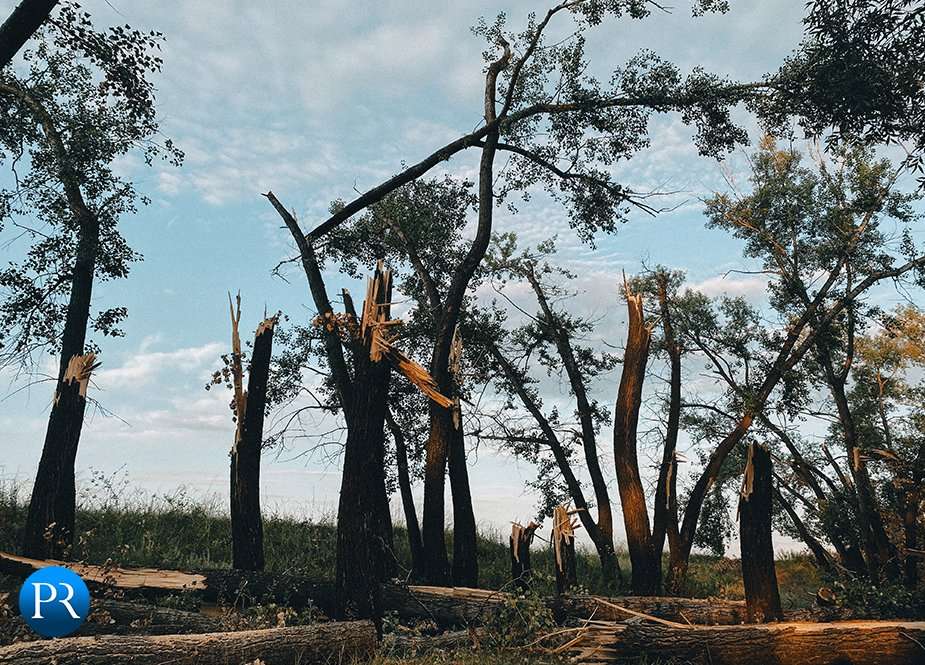
Deforestation in Pakistan: The Dire State of Ziarat Valley and its Climate Consequences
Pakistan, like many countries around the world, is grappling with the devastating effects of deforestation. One region deeply impacted by this ecological crisis is Ziarat Valley, located approximately 133 kilometres from Quetta, the capital city of Balochistan. Ziarat Valley is renowned for its breath-taking beauty, characterized by a lush green juniper forest, locally known as Sanober. This forest is home to the largest expanse of juniper trees in Pakistan, spanning an impressive 110,000 hectares. In fact, it is believed to be the second-largest juniper forest in the world, surpassed only by California’s in the United States. The juniper trees of Ziarat Valley are particularly significant, as some of them are estimated to be over 5,000 years old, making them invaluable natural treasures.
However, the allure of the juniper forest has proven to be its downfall. For centuries, local communities have engaged in large-scale deforestation, primarily for firewood and timber used in construction. Despite efforts made by the provincial government to address this issue, the rampant cutting down of juniper trees continues unabated, with detrimental consequences for both the environment and the people living in the area.
One of the underlying reasons for the persistent deforestation in Ziarat Valley is the lack of access to alternative energy sources for the local population. Although a gas pipeline was installed a few years ago, supplying gas to the main town of Ziarat, many villages remain without this essential resource. During the winter months, when the demand for heating increases, the pressure in the pipeline drops significantly, resulting in weeks of gas shortages. As a result, the villagers are left with no choice but to rely on the juniper forest for their heating needs, exacerbating the problem of deforestation.
The consequences of deforestation in Ziarat Valley extend beyond the immediate environmental impact. The loss of the juniper forest has far-reaching implications for the surrounding areas, such as Quetta and other neighboring cities. These regions are already grappling with the effects of climate change, and the disappearance of the juniper forest only exacerbates the situation. With each tree felled, the capacity of the forest to absorb carbon dioxide diminishes, leading to increased greenhouse gas emissions and the intensification of global warming.
The rise in temperatures witnessed in Quetta and other surrounding cities is a direct result of these environmental changes. As the once abundant juniper forest dwindles, the natural cooling effect it provided is lost, leaving the region more vulnerable to extreme heat. This heat, in turn, affects the health and well-being of the local population, increasing the risks of heat-related illnesses and putting additional strain on already limited resources.
To address the crisis of deforestation in Ziarat Valley, urgent and decisive action is needed. The authorities must take strict measures to halt the indiscriminate cutting down of juniper trees, ensuring the protection and preservation of this invaluable natural resource. In conjunction with these efforts, the government should also prioritize the provision of alternative means of heating to the local populace, such as gas and electricity. Reliable access to these energy sources would alleviate the dependency on the juniper forest for fuel and help mitigate further deforestation.
Moreover, comprehensive plans for reforestation and afforestation should be implemented, including the involvement of local communities. By raising awareness about the importance of preserving the juniper forest and providing sustainable alternatives, we can create a collective sense of responsibility towards the environment.
The consequences of deforestation in Ziarat Valley reach far beyond the immediate vicinity. The impact on the climate and surrounding areas, such as Quetta and neighbouring cities, underscores the urgency of addressing this issue. Let us work together to protect and restore the precious.